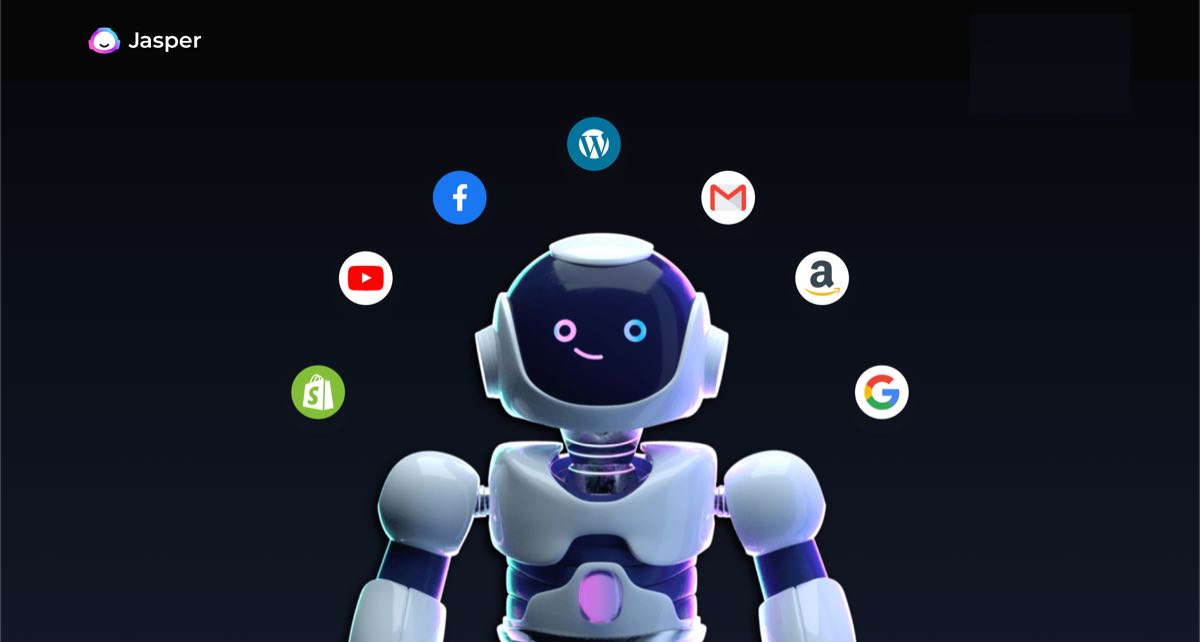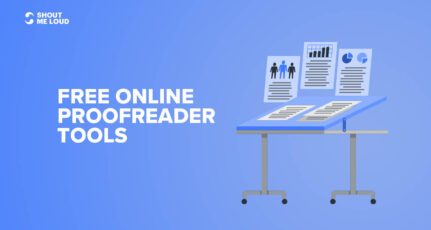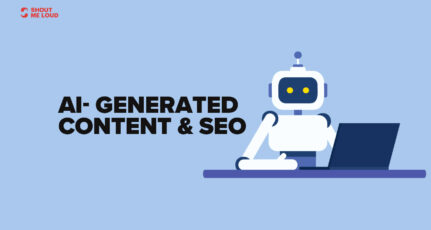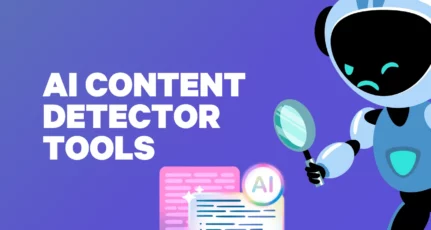When we talk about the risks of using AI, we usually think of scenes from movies like A Space Odyssey or The Terminator, where robots turn against humans. While the consequences are significant, they’re far less dramatic than the dystopian future often portrayed in movies. The risks are much more nuanced and subtle, and many people fail to recognize them until it is too late.
Recently, AI-assisted writing has been hailed as a way to create content faster, but hardly anyone talks about the risks involved. When companies like Open AI commercialized AI text generation, it also intensified the risk landscape.
AI opens up fantastic content marketing opportunities, but it’s also fraught with risks. And as with any new technology, you have two camps with conflicting reactions — the overzealous early adopters ignoring the pitfalls and the risk-averse laggards fiercely protesting it for fear of change.
So what’s the best approach?
I think the sweet spot is somewhere in the middle.
Good business leaders understand that these challenges are part of embracing transformative technologies.
It’s a mindset shift from fearing the risks to managing them.
To manage the risks, you need to understand them first. So let’s explore the potential downsides of using AI to write content.
What is AI content writing?
AI content writing refers to using artificial intelligence algorithms to generate text. More specifically, it’s using natural language generation (NLG), a subset of AI, to write in natural languages like English based on information input.
Jasper is the #1 AI writing tool, and here is a special offer for you.
Sign up in next 30 minutes, and claim 10K AI words for you,
8 Unwanted risks of using AI for content generation
1. The risk of making irresponsible claims
Irresponsible claims that you can’t back up with proof can result in heavy fines and penalties in regulated industries.
For example, if your product claims to cure cancer, and it doesn’t, you could face legal action and pay some hefty fines.
Activia yogurt, a famous brand from Dannon, claimed it is “clinically” and “scientifically” proven to regulate digestion and boost immune systems. However, the company had no facts to back up its claim, resulting in a $45 million fine in 2010. Source
New Balance had to pay $2.3 million in a settlement after being accused of false advertisement in 2011. They claimed that their shoes helped wearers burn calories, but studies found no such health benefits. Source
These are instances where humans signed off on the advertising claims. The risks are even higher if you’re using an AI writer without taking steps to fact-check your claims. So if you’re using AI to write ads for you, review the copy before publishing it.
Mitigation strategy: Get your legal team or seniors to review your content.
2. The risk of watered-down brand voice
Your brand voice is what makes your company unique. It’s how you communicate with your audience consistently across all channels.
If you’re using unedited AI copy, there’s a risk that your brand voice will become diluted or lost altogether.
Here are two versions of the same message. One is more warm and friendly, while the other is more formal and corporate.
Casual tone
Hey everyone,
We’re stoked to announce the launch of our brand-spankin’ new meditation app. It’s designed to improve your mental health and overall well-being. You can listen to guided meditations, watch bite-sized training videos, read articles, and even book sessions with licensed therapists—all on the go.
We’re rolling it out in phases. First, to colleagues in the UK and US, then everybody else. We’re here for you if you have any questions.
Download the app today to get started on your journey to a happier and healthier you!
Happy meditating!
The App Team
Formal tone
Dear Colleagues,
We are proud to announce the launch of our new meditation app. You can now access guided meditations, bite-sized training videos, read articles and consult with professional therapists.
In the first phase, the app will be made available to US and UK colleagues, then subsequently to other countries. Do not hesitate to contact us if you have any questions or comments.
Download the app today to get started.
Thanks and regards,
The App Team
Many AI content generators have the option to specify the tone of voice when generating copy. But AI can veer off course if you don’t carefully review the output. Also, check out interesting AI marketing statistics.
Mitigation strategy: Create a voice guide with real-life examples. Show what good and bad look like.
3. The risk of unintentional plagiarism
Another risk is plagiarism. Studies done by Guardian reported 2,278 cases of plagiarism in 2016-2017. With the rise in AI content writing tools, I’d expect the numbers to go up because they’re often marketed as 100 percent plagiarism-free content. Companies offering these tools should step up and educate users on the risks and ethics if they want to build a sustainable business.

However, the risk of plagiarism varies depending on the AI model you’re using. In most cases, language models like GPT-3 and ChatGPT create original text, but I’ve encountered instances where they regurgitate information from the internet verbatim.
Of course, isolated cases of plagiarism don’t make the tool unusable, but it’s crucial to understand the risk so you know how to avoid it. Also, check top AI content detection tools.
Mitigation strategy: Run your work through a plagiarism checker.
4. Risk of brand reputation
Moravec’s Paradox says that it’s easy for AI to learn things that are hard for humans, like mathematics and logic. But it’s hard for them to understand things like empathy and emotions that humans find easy. Emotions are hard to teach because we don’t have logical steps to explain feelings and how we perceive the world.
Since AI doesn’t understand empathy, AI-generated content might lack sensitivity. So using AI tools in situations where context and empathy are crucial is a high-risk decision.
In his book Heartificial Empathy, Minter Dial explores coding empathy into AI. It’s an interesting take and might even be possible in the future, but I think we’re still a long way off, given that humans haven’t cracked the code to empathy yet.
Mitigation strategy: Develop an internal decision framework to assess the risk of using AI in different scenarios. Involve your risk management team in the decision process.
5. Risk of Google penalties
Google clearly stated that the webspam team could take action against automated content if it is discovered. While Google spokesperson John Mueller wasn’t clear about Google’s ability to detect AI-generated content, it’s pretty obvious that using AI to generate SEO content will be a cat-and-mouse game. Especially with Google’s helpful content update.

Mitigation strategy: I think the best way to avoid penalties is to use AI as a creative assistant rather than relying on it 100 percent.
6. Risk of factual errors
Fact-checking should be part of your content workflow regardless of whether you’re using AI. But it’s vital to use AI because AI making up facts is one of the biggest risks associated with AI content. Even the best language models, like GPT-3, make mistakes. These errors are hard to spot because they’re often tucked between factual paragraphs.
I asked an AI tool to write a life story about Abraham Lincoln. It gave me the below output:
Lincoln’s father was a farmer and carpenter born in Virginia in 1778. His mother, Nancy Hanks Lincoln, was of English and Scots-Irish descent. She died when Abraham was nine years old.
In 1816, Lincoln’s father married Sarah Bush Johnston. Sarah was a widow with three children of her own. She helped her husband to raise Abraham and his brother, Thomas, Jr.
It sounds good, and some of the facts are right. But Lincoln’s parents got married in 1819, and Nancy Hanks Lincoln was American. The incorrect information is easy to miss because a lot of the other information it wrote was accurate.
Here’s another example, I got the below output when using an AI to write a blog post.
By 2030, 50% of all human knowledge will reside in machines
In fact, according to a recent study conducted by IBM, only 30% of senior executives believe AI will transform their industry by 2025.
The AI writing tool made up the stats; I couldn’t find any source to validate the numbers.
Mitigation strategy: Research and manually fact-check your content before publishing it.
7. Risk of bias
AI is only as good as the data it’s trained on. If the data is biased, the language model will be too. While most AI models have built-in safeguards to avoid this, biases can always creep in. For example, if the training data is biased or underrepresents a group of people, the model will be biased. That’s why you always need human oversight before publishing any AI content.
Amazon had to scrap its recruiting tool that used artificial intelligence to select candidates after machine learning experts uncovered that the algorithm was biased against women. The data sample used to train the algorithm mainly consisted of male resumes, so the algorithm favored male candidates.
Amazon’s experience is just one example of how AI bias can have real-world consequences. So if you’re using AI content writing tools, ensure safeguards are in place to avoid bias.
Mitigation strategy: Use tools that have taken steps to avoid bias in their language models. You can always ask the provider what steps they’ve taken to avoid discrimination.
8. Lack of original ideas
AI can’t create new ideas or concepts; it merely emulates the patterns recognized in the training data, so there is a risk of lacking original ideas if you rely entirely on AI for writing.
Strong ideas and thought leadership content needs:
- Analysis
- Reasoning
- Reevaluation of status quo based on new information
- Personal experience
- Storytelling
- Opinions
All of which AI struggles with, at least in its current state. So, if you’re looking to generate thought-provoking content that challenges the status quo, AI is not your best bet.
Mitigation strategy: Involve subject matter experts in your workflow.
The future of AI-assisted content writing
If you rely entirely on AI to generate your content, you’ll end up with a lot of text that doesn’t say much. But it can still be a powerful tool for content marketers — especially when coupled with human expertise. So learn to tame the beast, and you’ll be able to create some pretty unique content.








Hi Vivek,
Great article, and very valid points.
The summary of AI writing currently is very clear: use it with caution and edits. Generate the content using AI tools, but apply your own brand voice, check your facts, check for plagiarism, edit the language. There is still a LOT of work for content editors, but AI tools do reduce your work by 20-30%, in my experience.
Cheers,
Poulomi
“Helpful Content Update” google is taking strict actions against websites with Ai-Content. Google is trying to become a “problem-solving engine” rather than being the only search engine
great article with useful information. My question is about citations… As I am new to blogging, I am a bit confused about using someone else’s research and content on my blog. For instance, you mention the use of Statista.com. So I went to the site, entered a search for my niche, and found a nice article with some statistics that would be relevant… However, their site clearly states you are only able to publish the data with a corporate account (way too costly for a startup blogger). Do you have any insight as to the best approaches for citation practices and such?
Hi Vivek, This is maybe the most compelling illustration yet of why there must continue to be at least one human editor involved in the production process for the foreseeable future. excellent post, as well as research.
I also use Ai and blog about Ai as well and I have to say at this point you may see so much of what you think are pitfalls but humans needs to focus their energies on working with Ai because it’s here to replace emotional people who can’t get certified when paid because of Wants. With AI’s people will get more things to do with their times I feel at this initial stage it’s bound to have flaws and it won’t stop the replacement of copywriters because there will always be a better version of AI like the way mobile phones started and look where we are now some level of perfection right?.. 😊
Thanks for writing about this alarming issue. We should definitely use technology to assist us, but not entirely be dependent. At the end, these AI tools gather information from random sources and can mislead the readers. Hope more people will understand and be responsible user of these technologies. Again thank you for sharing this.
Being in front of a blank paper and starting to write a new blog post is sometimes difficult. Ai content writing can help generate some text that will be a starting point for our post. But after you have to do a lot of research on the subject, add your personal touch and run your work through a plagiarism checker.
My suggestion would be if you want to use an AI writing tool, use it for research, compiling ideas and creating outlines. Don’t use an AI writing tool if you are not an experienced content writer because otherwise, you won’t be able to judge its quality.
Without a doubt. And, following the latest Update Google is taking harsh measures against websites that use AI-Content. Google trying to show valuable and relevant sites depending on user query. Google main goal is to solve user query as good as possible way no matter what.
Hello Vivek,
Thank you for writing such an informative article on AI content writing risks. I found it very helpful in understanding the different dangers and how to mitigate them. I hope you will continue to write such informative pieces and keep the information updated on new risks.
Thank you,
Prasanna.
Very well written article. In my opinion, AI based content is not something to be proud of since its simply being unfair to those bloggers who actually make an effort to write content. Plus, it might get blacklisted in future, who knows!
The biggest downside to AI Vivek is that AI-generated content sounds soul-less, life-less, bland and watered-down. Sans these drawbacks, it sounds OK LOL. Perhaps brainstorming or outlining posts sounds OK and maybe you can heavily edit AI-generated content, but writing words as a human works best.
Great points here.
Ryan
Hello Vivek The points made here are excellent. Although I adore Jasper AI, I don’t always use it. It’s a fantastic opener and a means to come up with a few paragraphs here and there that I could find difficult to write. It allows you to do more in less time and works like having a writing partner. Although I haven’t seen any biassed content yet, I’ll be on the alert now and appreciate the knowledge.
Hii… I totally agree with your words I had a website that was running an amazon affiliate and doing great all content were AI-Generated and I have seen tons of visitors on my website but after the update, 80% of my traffic is now gone. Now rebuilding it in a more organic way.
Great article, I didn’t realize all the risks involved with AI copy. However, a serious content creator will always read and check their work. Its very easy to check for plagiarism and especially easy to read over what has been written and keep it in the same voice. However, you have made some very strong points on exactly how NOT to use AI and thanks, a good reminder.
I like AI for idea generation, really good AI can help produce AIDA based outlines don’t you think?
all the best and thanks again for the article
Well yours is the only article that I came across to date regarding the AI with its downside in detailed
I agree with you and some of the concerns even I had.
Simply put, an AI writing tool simply can’t overwrite or overrule a human with his faculty of thought process and reasoning ever.
I never used one and might be using it to a limited extent in future if I begin my writing busines .this is still early to tell.
Thank you for still giving clarify to writers and marketers and even those who own a business as well.
Hello Vivek,
AI is growing at a rapid pace in content writing. It saves time for content generation. However, There are definitely some risks behind it and you have elaborated on everything in detail. I am still writing content myself and never used any AI tools to create content for my blog. Thanks for sharing this helpful article.
Regards,
Vishwajeet Kumar
Hi Vivek, Excellent points were taken here. I love Jasper AI but I don’t use it 100%. It’s a great starter and a way to generate a few paragraphs here and there that I may struggle with. It’s a way to get more done quicker and it’s like having a partner to work with on articles. I haven’t noticed any bias content yet though I’ll be on the lookout now, thank you for this information.
Yup, absolutely. And after the recent “Helpful Content Update” google is taking strict actions against websites with Ai-Content. Google is trying to become a “problem-solving engine” rather than being the only search engine.